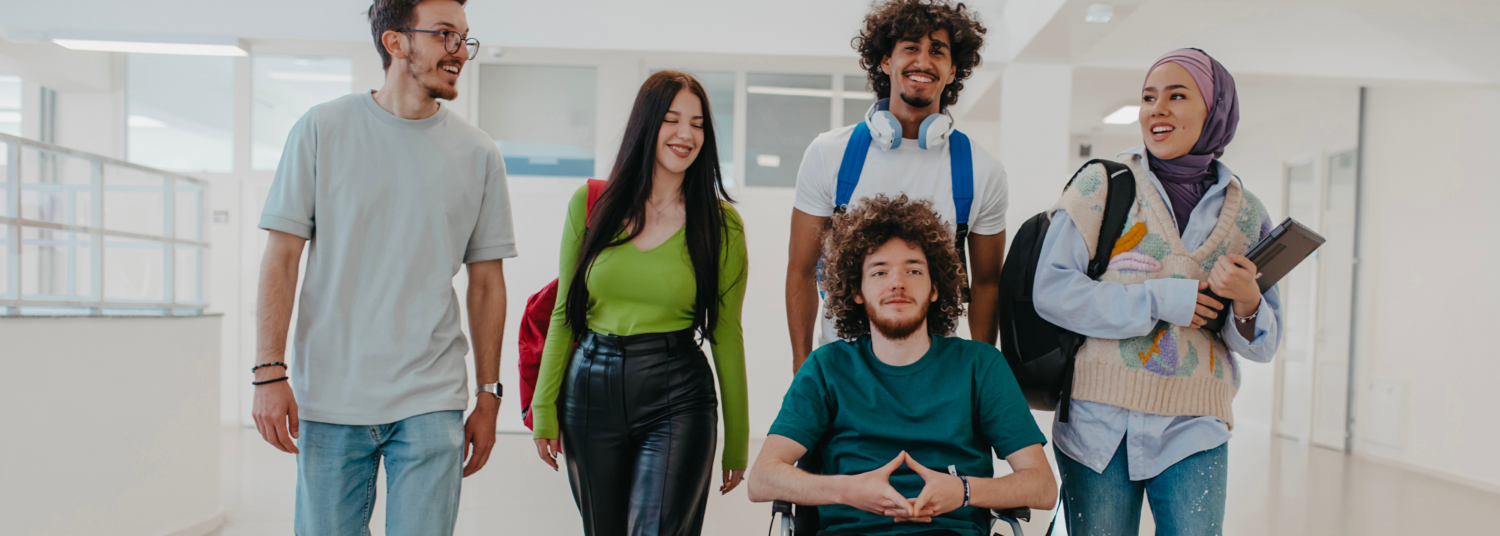Deaf students across the country are constantly being underestimated, and working against stereotypes that lower the expectations others have for them and that they have for themselves. In fact, low expectations is one of the root causes for the achievement gap between deaf and hearing people identified by researchers at the National Deaf Center on Postsecondary Outcomes.
In South Carolina, this was evident in “stocker syndrome,” the expectation that deaf students would eventually stock shelves for a living.
“I think it showed a crisis and a lack of creativity,” said Kathy Stoehr, State Coordinator Deaf and Hard of Hearing Services Client Services Specialist, South Carolina Vocational Rehabilitation Department. “It is a systemic issue and sends the wrong message to parents.”
Stoehr and one of her Engage for Change | state initiative partners, Amelia England, along with the other seven members of the SC NDC Core Team wanted to raise those expectations. Their efforts eventually led to South Carolina’s popular Transition Tuesdays events, which feature deaf professionals sharing their experiences and connecting with deaf students across the state.
An Idea Is Born: The Virtual Transition Fair
The South Carolina team started by collaborating with other agencies to break down silos and plan a virtual transition fair in 2019.
They focused on preparing for college: classes to take, filling out the FAFSA, and all the other events that would have occurred in-person. Overall, the fair was a success, with more than 80 participants. But there were some bumps along the way.
“We could do it better today, with our experience from the pandemic,” Stoehr said. But, the fair was a great learning opportunity — both for the students and for the organizers.
The team learned the virtual experience was easier for schools — eliminating the cost and difficulties associated with transporting students. However, three hours in front of a screen was too much for the students, especially those who relied on captions or lip-reading.
Building on Success: Transition Tuesdays
England said that her personal goal was to increase mentorship for deaf students — especially those in mainstream schools.
“We need deaf role models,” she said.
So, the team took what they learned from the virtual transition fair and narrowed the focus. They decided to use virtual platforms to bring deaf role models to deaf students, their families, teachers, and other professionals — combating low expectations and other stereotypes against deaf people. Once a month, they choose a professional to highlight, with the intention of showcasing diversity of people, professions, education, and skills.
One of the most popular was also one of the first, a deaf woman who works in a law office. She told students about how she used vocational rehabilitation services, getting the right accommodations, and how she battles common misconceptions.
“We had really rich discussions with the students about opportunities that they didn’t think of, or their parents and teachers said they couldn’t have,” Stoehr said. “They can, you know? That’s where we’re seeing a more powerful impact, by having the students see ahead without limits imposed by others..”
Looking to the Future
The events are all recorded, with future plans to have them available for free on the Department of Education website. They have also expanded access by adding CART in addition to interpreting services.
In the future, they plan to do even more.
“We’re still in the shallow end,” Stoehr said. “We hope to bring in more parents and employers and get more people engaged.”
England said she hopes to one day bring people back together in-person, especially after seeing how difficult it was to get people to follow up online.
“We had students and parents in the room without online access at home,” she said. “That’s one thing I’ve been thinking about. Maybe we should do it both ways.”
EFC | state Helped Make it Happen
Stoehr and England both credit EFC | state with some of their success. Meeting through Zoom, state leaders from across the country have continued to collaborate during the pandemic through regional and national meetings.
“This would have fallen apart without NDC,” Stoehr said. “They helped us stay cohesive and move forward. It also keeps up our momentum to meet with colleagues at EFC | state events.”
Through the initiative, the South Carolina team has been able to collaborate with their peers from other states, and learn strategies for breaking down barriers in their own state. NDC also provided the research needed to take a data-driven approach to solving problems.
“Through the NDC, there were so many different resources. I was astounded,” England said. “That was what I was looking for, right there. Rather than searching for different sites and not finding what I needed, NDC has almost everything that I need. It’s really cool.”
Reach Out to NDC
NDC has hundreds of resources available to help anyone — state leaders, disability services professionals, deaf students and their families, administrators, employers, and more — better understand and connect with deaf people.
Browse frequently asked questions, take a free online class for professional development credit, or learn from personal stories in NDC’s video library.
Need individualized assistance? Contact the NDC | help team with your questions or concerns.









